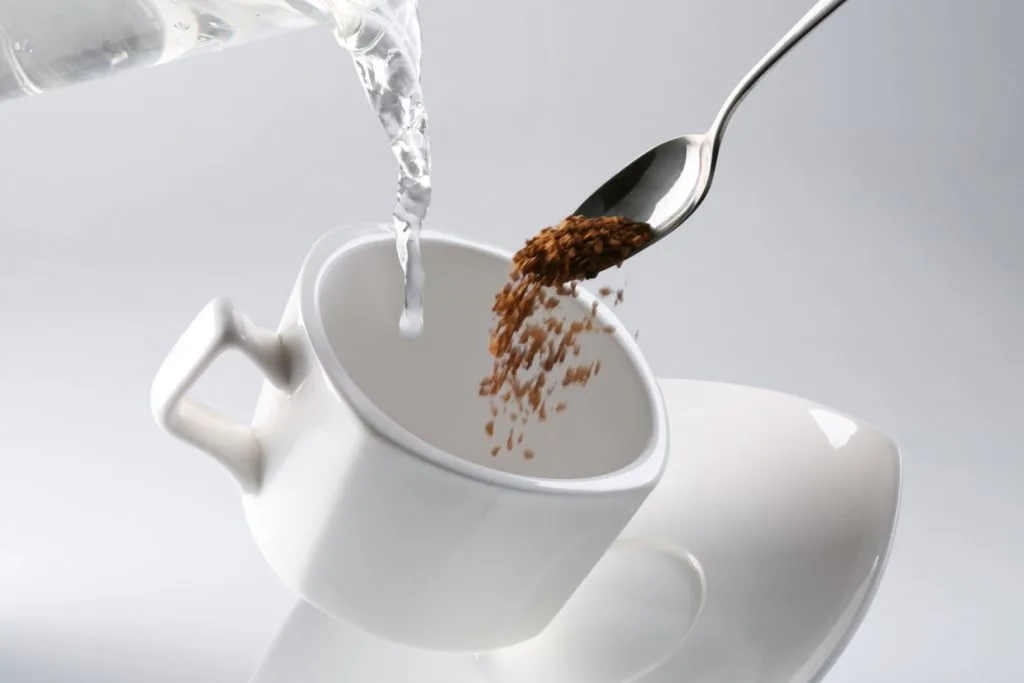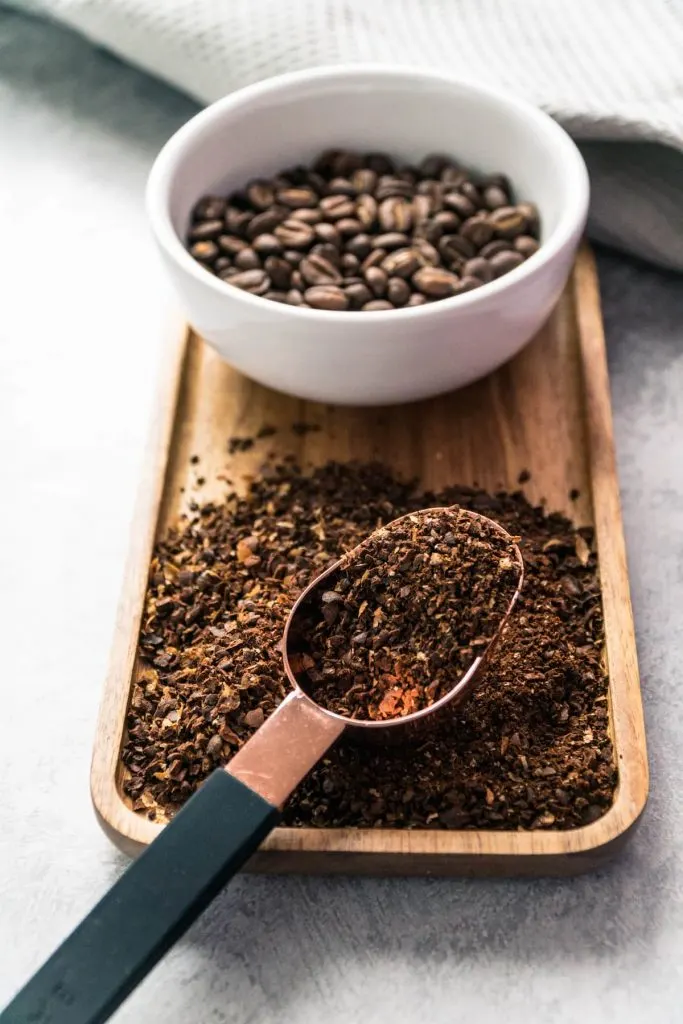There is also nothing quite as bad as weak, watery tasting coffee – that can ruin a good day! If your coffee is too watery and tastes week, there are ways to fix it. Try these 5 fixes and you will never again ask, “why does my coffee taste watery?”
Coffee can taste watery for various reasons, such as incorrect grind size or not enough coffee for brewing. To fix watery coffee, use the right grind size and amount of grinds for your brewing method, degass your coffee beans for longer, check your coffee machine, or switch to a more intense roast.

Why Does My Coffee Taste Watery?
There are many different types of coffee and many different types of coffee drinkers. Whatever your preference is, everyone can agree that a watery cup of coffee is not worth drinking.
Disclaimer: Hi! this post may contain affiliate links which will take you to online retailers that sell products and services. If you click on one and buy something, I may earn a commission, see my Affiliate Disclosure for more details.
If your coffee suddenly tastes weak, or if a new brand of coffee that you’re trying out is disappointingly weak, you may be asking, “why does my coffee taste watery?”
There are various reasons why coffee may taste watery or weak, all of which are available or fixable.
Coffee must be brewed within relatively narrow parameters, especially lighter roast coffee, and if these parameters are not kept to, it may produce a bad tasking cup of coffee. We all take coffee for granted, but there is quite a specific process to brew the perfect cup.
Your coffee may taste water for a number of reasons, the most likely of which is because not enough coffee grinds were used to brew the coffee. The simplest and most common reason for a water cup of coffee is too little coffee is used in the process.
For coffee to be strong, there must be enough of it to fully saturate the water that it soaks in, or else it will taste weak.
Another very common reason for a watery or weak coffee experience, and one that is not as obvious, is the coarseness of the coffee grinds. Coffee grinds come in a few varieties of grind size, ranging from extra fine to extra coarse.
Each grind size requires specific brewing methods and times to produce optimum flavor. If the incorrect grind size is used, the coffee that is brewed may taste very weak and watery.
Watery coffee tends to come from under-extracted coffee grinds, which usually means that the coffee is not being brewed long enough the grind is too coarse for the brewing method.
Some other common reasons for watery tasting coffee could be a problem with the coffee machine or device that is being used, accidentally using a weak roast or coffee beans that have not been degassed for long enough.
A malfunctioning coffee machine or brewing device may be to blame for week coffee if it is not allowing the coffee to brew for long enough or if it is not heating the water to the correct temperature for brewing.
There are coffee roasts that are intentionally weaker tasting than other roasts, and it is entirely possible that you have accidentally used a bag of very lightly roasted coffee beans rather than your usual dark roast.
Coffee degassing is a little-known process, but it is vital for a strong-tasting, full flavored cup of coffee. If coffee beans are not left to degass for long enough after roasting, it may lead to a very weak and watery cup.
There are more reasons for a watery tasting cup of coffee, but these are the most likely culprits.
Are there any ways to fix a watery or weak-tasting cup of coffee? Let’s find out!
5 Ways To Fix Watery Coffee
If you find yourself in the miserable situation that is drinking a watery cup of coffee, there are some general fixes that you can try before brewing your next cup.
Watery coffee does not have to be the norm. Here are a few solutions to consider to solve your weak coffee situation.
1. Change The Grind To Suit Your Brewing Method

Carefully consider the coarseness of the coffee grinds that you are using. If the grinds that you use are too coarse for your brewing method, it is very likely to produce a weak cup of coffee.
Espresso machines, Moka pots, and Aeropress coffee makers should use fine to extra fine ground beans. Regular drip machines should use medium grinds, and a brewing method such as the french press should use a coarse grind.
2. Use More Coffee For Your Brewing Method
Some brewing methods require more coffee than others. An Aeropress or a Moka pot can use a very small amount of coffee grinds, but a method such as a french press should use much more coffee in the brewing process.
Adding extra grinds to any brewing process will produce stronger coffee, regardless of the grind size or roast intensity. Add more coffee, and your cup will taste stronger.
3. Degass Home-Roasted Coffee Beans For Longer
Allowing roasted coffee beans to properly degass before grinding and brewing is a crucial process for every type of coffee. This is especially pertinent for those who roast their own beans at home, but it may also affect the coffee drinker who buys directly from a roastery.
Degassing is the process of allowing the built-up gasses within the coffee beans that are produced in the roasting process to escape over time. If these gasses are not allowed to escape before grinding and brewing, they form a small gas bubble around the coffee grinds that prevents the water from properly soaking through them, leading to a poor cup of coffee.
Allow the coffee to degass properly it will improve the coffee overall.
4. Check For Coffee Machine Malfunction
A malfunctioning coffee machine may not be allowing the beans to brew for long enough or may not be bringing the water up to a high enough temperature for proper brewing.
If this is the case, have the machine repaired or serviced or switch to another brewing method to make a stronger cup.
5. Change To A More Intense Roast
It is entirely possible that you are using a coffee that may not be as strong as you may like it to be, or if the roastery that you like has rebranded their light roast to the same packaging as their dark roast.
Be sure that you are using a roast that is strong enough for your liking, and if not, switch to a more intense roast to produce a stronger tasting cup of coffee.
A watery cup of coffee is very unpleasant and can be a bad start to a day.
To make sure that your coffee is never too weak or watery, always use the right coffee for your preferred brewing process, use good quality beans from a good source, and be careful about the brewing process.
Follow these steps, and your coffee will never be disappointing again!
